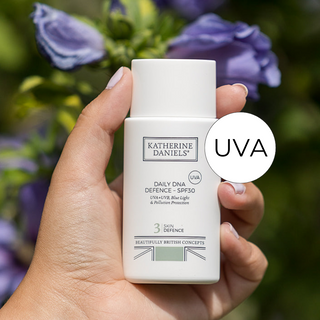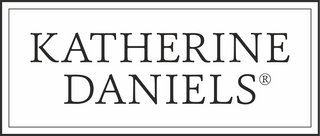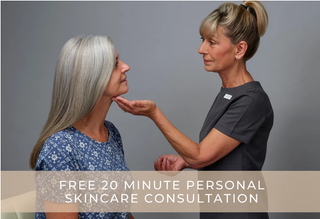SPF: more than a buzzword. A healthcare essential.
Sun Protection Factor: SPF, is more than just a buzzword. It protects your skin against the ageing and burning radiation emitted from the sun.
There’s a new generation of SPF in town! It protects your skin from UVA, UVB, blue light radiation and damage from pollution too. Our Daily DNA Defence SPF30 is one of these products!
We’re going to dig deep into SPF’s. Why are they indispensable? How to include it into your daily skincare regime (it’s notoriously difficult thanks to heavy textures which leave your skin looking shiny. A no-no for make-up wearers). We’ll also look at your diet and which foods can contribute to supporting topically applied SPF products.
The science of SPF.
SPF is a measure of how well and how long a sun cream protects your skin from the harmful UVB rays. These rays are responsible for sunburn and contribute to skin cancer. They are not alone when it comes to skin damage. UVA rays penetrate deeper into your skin than UVB and cause premature skin ageing. When selecting an SPF look out for a broad-spectrum sun cream. It protects against both UVA and UVB rays.
Just as important is your face, neck and décolleté; integrating a broad-spectrum SPF into your daily skincare is not just for aesthetic effect but a healthcare essential. You’re likely to prefer a lightweight texture cream for your face. One which will not leave your skin shiny. One which your make-up will sit well over. One which primes your skin to ensure the longevity of your make-up. Our Daily DNA Defence SPF30 comes up trumps and ticks all these boxes.
Does your facial moisturiser with SPF ‘built in’ fully protect your skin?
Check your label. Is the SPF in your moisturiser broad spectrum? Does it protect your skin from UVA and UVB rays? Unless it says it on the pack then it probably doesn’t. It’s likely to protect from UVB rays (burning) but not from UVA rays (ageing). Look out for the UVA protection symbol. It’s an A in a circle

SPF protection levels.
SPF15: Blocks approximately 93% of UVB rays
SPF30: Blocks approximately 97% of UVB rays
SPF50: Blocks approximately 98% of UVB rays
While the difference in percentage is small it’s significant, especially if you are fair-skinned, have a history of skin cancer or suffer from photosensitivity to sunlight.
Layering your products to heighten your protection.
You can easily give your SPF a helping hand and apply it to prepared skin. Nothing fancy. Just follow your usual morning skincare routine. To cleansed skin, apply your usual concentrate and treatment cream (avoid retinol-based products). Not only will your skin be given its usual nurturing care, layering products build a natural layer of defence, bolstering the SPF protection of your sun cream. It will stop your hair follicles becoming blocked and blackheads and spots forming. Yes, that is why people often claim that SPF gives them spots! They don’t prep their skin prior to SPF application and they don’t cleanse the SPF off their skin properly.
SPF, your final coat of skin armour.
If you’re layering your products in this way, your SPF becomes your final layer. Choose an SPF which is featherweight. Choose one which will not feel heavy or oily on your skin. If you intend to apply any make-up over your SPF, choose a product with a matte finish. Our Daily DNA Defence SPF30 is all these things.
The same applies for your body, apply your SPF over moisturised skin. Our Nourishing Hydrating Balm will give your skin a good mix of nourishment and hydration and keep it supple and comfortable in the sun. It makes a superior after sun for your body. Better than anything I have ever used.
Avoid all day protection SPF products. These are either alcohol laden which will make your skin look and feel dry and scaly with ongoing use, or they are occlusive, creating a waterproof layer over your skin. If you suffer from prickly heat this will make the problem worse as it blocks your sweat glands. It’s really difficult to remove too, meaning day after day you get a build-up of product on your skin.
What are photostable formulations.
The SPF doesn’t break down in the sunlight. Gauge your reapplication by how your skin feels and looks. Photostable suncream will be removed with sweat, when swimming and from towel drying. It will also rub off on tight clothing.
Application, how much and how often?
Too little will diminish the level of protection. Aim for a shot glass worth (two tablespoons) for your entire body and a 5p piece for your face, the same again for your neck and décolleté. Then reapply at least every two hours and immediately after swimming or excessive sweating and towel drying. Your skin will get the best protection SPF can give you!
A holistic approach.
Clothing is your first line of defence against the sun. Covering up with a hat is a must. Sun protective clothing is readily available. Look for clothing with Ultraviolet Protection Factor (UPF).
Boost your diet with antioxidants. Vitamin C and E neutralise free radicals formed through exposure to UVA and UVB. You know the script, blueberries, citrus fruit, nuts, leafy green vegetables and oily fish are all antioxidant rich. Foods rich in carotenoids (carrots are great) and lycopene (found in tomatoes) are great for protecting your skin too.
Summer skincare swaps.
Antioxidant rich concentrates will really help. For the summer months our Total Skin Repair Concentrate and Multi-Vitamin Concentrate will bolster your efforts and keep your skin in great shape beneath your sunscreen. It adds an extra layer of defence and supports the repair mechanism of your skin, which naturally begins post sun exposure.
SPF, the best weather protection.
Snow, sand and water reflect UV rays intensifying their ability to damage your skin.
Cold wind and rain weather beat your skin, making it sore and chapped. Your SPF will form a protective layer against the damage. And you can still get burnt on cloudy days. Suncream is your every season, every weather best friend.
Defending and repairing your cells.
After exposure to UV, blue light and pollution your cells begin to repair themselves. Our Daily DNA Defence SPF30 contains both defence and repair enzymes. The defence enzymes protect your cells during exposure. The repair enzymes stimulate your cells ability to repair after exposure. Your skin is better protected and able to repair itself.




